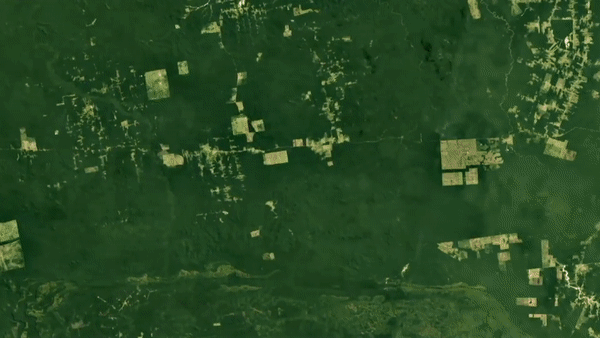
The
Bioplanning
Institute
A commitment to advancing biomimetic urban planning
The Bioplanning Institute is a non-profit created with the intention of advancing the Bioplanning approach in urban planning, architecture, and construction. Its mission is to research, develop, promote the study of, and raise awareness about Bioplanning as an effective and viable approach to address the world’s rapid urbanization needs, the climate crisis, and the metacrisis that our civilization is facing.
Our mission is to advance Bioplanning as a recognized design approach through research and development, education, and talent activation.

Comparative Feasibility Study
Discover the transformative potential of your city with our Comparative Feasibility Study, showcasing how Bioplanning’s innovative urban design can create a more resilient, sustainable, and vibrant future.
Deliverables
01
Baseline Report
A comprehensive assessment of current urban conditions and baseline metrics.
04
Public Dissemination Materials
Visual aids, presentations, and reports for stakeholder engagement.
02
Bioplanned Community Virtual Simulation Model
An interactive, 3D model showcasing the proposed bioplanned cellular city.
05
Policy Recommendations
Guidelines and strategies for implementing Bioplanning principles in future urban development projects.
03
Comparative Analysis Report
Detailed analysis comparing current country climate risk profile, crime rates, and more with bioplanned community perfomance projections.
Key Metrics Showcasing Social, Economic, and Ecological Benefits:

Bioplanning Approach
Bioplanning is an urban design approach that integrates nature's patterns to create efficient, ecologically-based cities. It promotes land use optimization, reduced environmental impact, and minimal road infrastructure, advocating for urban environments that mimic natural ecosystems through life-centric principles, regenerative thinking, and biomimetic solutions.
Bioplanning Principles
01
Oneness
Design with life at the center. Oneness represents harmony, respect for all life, and the pursuit of environmental restoration. It focuses on preserving resources, reducing waste, and counteracting climate change through strategies like circular economy and clean energy.
04
Belonging
Be present. Be local. Be inclusive. Belonging fosters community, inclusivity, and local identity. It encourages face-to-face interactions and designs that respect cultural and geographic contexts, supporting local adaptation and sustainability.
02
Grounding
Connect everything to the earth’s natural energy. Grounding integrates nature into human development, harmonizing urban spaces with natural ecosystems using vegetation, earth-based materials, and biophilic design.
05
Flourishing
Co-create as a community at every scale. Flourishing promotes collaboration and decentralization, empowering communities to innovate with equality, accessibility, and open access to growth opportunities.
03
Flowing
Embrace natural cycles to create balance. Flowing optimizes resource flows inspired by natural systems, improving water, waste, and transportation management for resilient infrastructure.
An introduction to Bioplanning by Dror Benshetrit at TEDxAmazonia, November 2023
Bioplanning places a strong emphasis on making nature central to communities, prioritizing nature nodes over traditional land subdivision.

Future Goals
Certification
The Bioplanning Institute is committed to urban development that is ecologically sustainable and socially harmonious. After our detailed feasibility studies, we aim to create an innovative certification system for bioplanned projects—think LEED, but for ecological urban planning. This certification will set a global benchmark, using key metrics from our six research categories.
Bioplanning AI
Bioplanning AI is the digital twin, a tool to develop Comparative Feasibility Studies for future urban development that allows the use of computational technologies to create digital bioplanning communities and measure key metrics that will be developed during initial feasibility studies together with top researchers.
Founding Members
Bioplanning is the culmination of 6 years of research conducted by Supernature Labs, in partnership with industry-leading experts. The Bioplanning Institute is supported by a multidisciplinary team of experts in sustainability, design, and urban planning. Our founding members bring diverse expertise, guiding our mission to research, develop, and promote Bioplanning. Their collective knowledge helps address the climate crisis through sustainable construction and development.
"Bioplanning: A New Design Discipline"
Bioplanning: A New Design Discipline is the Bioplanning Institute’s introductory publication containing the Bioplanning Design Manual along with a series of essays written by our remarkable network of subject matter experts. The publication delves into the ecological, social, community, and economic benefits of the Bioplanning approach.


Join The Movement
The Bioplanning Institute offers a variety of ways to be involved:
Independent Research
Individuals interested in advancing Bioplanning through independent research.
Government
National and municipal entities interested in developing urban feasibility studies.
Strategic Alliances
Corporations, NGOs, and other individuals interested in strategic alliances
Other
To learn more about opportunities to work together please contact us at: info@bioplanninginstitute.org
Academia
Urban Design or relevant departments interested in studio creation.
Talent
Multidisciplinary talent interested in co-creating a productized system offering
Speaking Engagements
Conferences and corporations interested in keynote presentations.
Private Sector
Corporations interested in advancing research on a specific subject mater.
Real Estate Development
Entities interested in exploring Bioplanning as a design alternative for land development.
Philanthropy
Donations and contributions to the establishment of local Bioplanning Institutes.
Key Collaborators
The Bioplanning Institute, through its established nonprofit-corporate partnership with Supernature Labs, collaborates with leading experts in urban research and planning, environmental assessment, architectural and urban design, bio-economic development, growth strategy, and other related fields.































